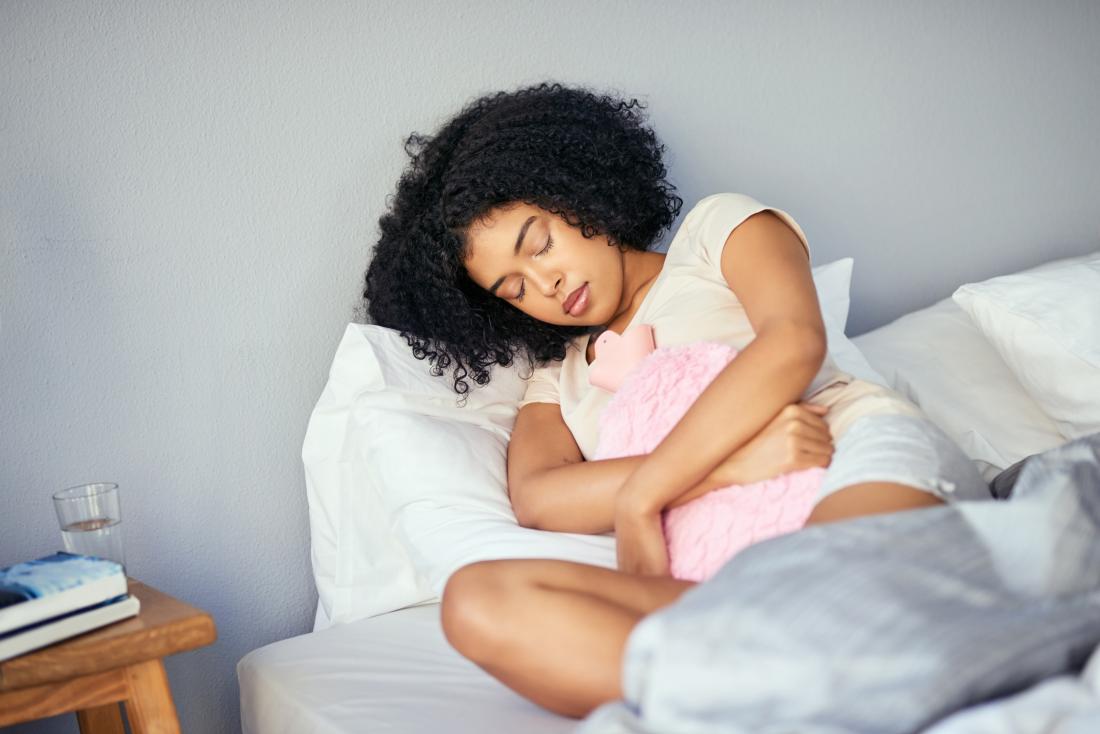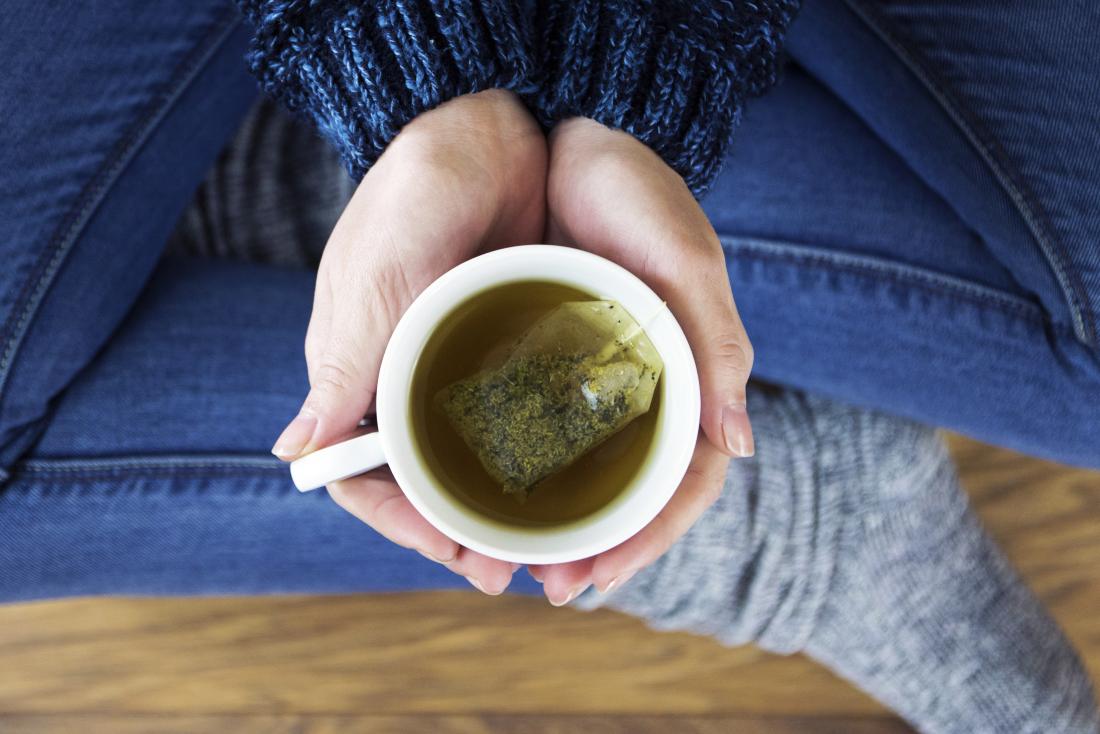During a period, the uterus contracts to squeeze the lining away from the uterine wall and allow it to exit the body through the vagina. These uterine contractions cause painful cramps.
Most women experience cramps in the lower abdomen, although the pain can also radiate to the lower back, groin, or upper thighs. Menstrual cramps tend to be the worst at the beginning of a period and become less uncomfortable as the days go on.
Many home remedies can help relieve menstrual cramps, including the following:
Heat

A hot water bottle can relieve cramps.
Placing a hot water bottle or heating pad against the abdomen can relax the muscles and relieve cramps.
Heat helps the uterine muscle and those around it relax, which may ease cramping and discomfort.
A person can also place a heating pad on the lower back to get rid of back pain. Another option is to soak in a warm bath, which can help relax the muscles in the abdomen, back, and legs.
Gentle exercise
Although exercise may be the last thing that many women feel like doing when they have cramps, it may provide pain relief.
Strenuous exercise might not be beneficial if a person is in pain, but gentle stretching, going for a walk, or doing yoga may help. Exercise also releases endorphins, which are nature’s natural pain relievers.
A Taiwanese study found that 12 weeks of twice-weekly yoga classes reduced menstrual cramps in the study participants.
Orgasm
An orgasm is a great remedy for menstrual cramps. Similar to exercise, having an orgasm releases plenty of endorphins and other hormones that relieve pain, helping a person feel good.
Acupuncture
Research has shown that acupuncture can relieve menstrual cramps. This treatment may reduce inflammation, in addition to releasing endorphins and helping a person relax.
A person is more likely to benefit from an ongoing course of acupuncture than a single session.
Massage
Getting a massage or doing self-massage over the abdomen can also relax the pelvic muscles and alleviate cramping.
People can gently rub a massage oil, body lotion, or coconut oil into their skin.
Essential oils
A 2013 study compared menstrual pain relief after abdominal massage in two groups of female students. One group had massages using only almond oil, while the other group had massages using a blend of essential oils that consisted of cinnamon, clove, lavender, and rose in an almond oil base.
The researchers found that the group using the essential oils felt more significant relief from menstrual cramps than the group using only the carrier oil.
People can try adding a few drops of at least one of these essential oils to a carrier oil for an effective abdominal self-massage.
Herbal tea
Herbal teas are warm and soothing, and in some cases, the herbs themselves can be beneficial as well.
Some manufacturers market specific teas, such as chamomile, dandelion, red raspberry, and fennel teas, as providing relief from menstrual cramps. However, there is little evidence to support this.
Dietary changes

Dehydration is one cause of muscle cramps.
Making some changes to the diet may reduce menstrual cramping.
Eating a diet rich in omega-3 fatty acids, fruits, vegetables, nuts, lean proteins, and whole grains helps the body stay healthy.
Increasing the intake of fluids, such as water and herbal teas, will help the body stay hydrated. Dehydration is a common cause of muscle cramps.
Finally, it is best to cut out unnecessary salt, which can cause bloating and fluid retention, and caffeine, which can have a dehydrating effect.
Over-the-counter medication
If natural home remedies do not relieve pain, a person can try using an over-the-counter pain reliever, such as acetaminophen (Tylenol) or ibuprofen (Motrin).
These medications can relieve inflammation, pain, and menstrual cramps. It is essential to follow the dosage directions on the bottle and speak to a doctor if the recommended dose is insufficient to relieve menstrual cramps.
When to see a doctor
A person may wish to talk to a doctor if home remedies do not help reduce cramps or if they are experiencing very severe cramps.
A doctor can suggest other home remedies to try or prescribe medications, such as birth control pills or some types of pain reliever, to manage the symptoms.
Other symptoms that may warrant a visit to the doctor include:
- very heavy bleeding
- cramps that get worse over time or with age
- severe pain or discomfort
- cramps that interfere with daily life
These symptoms may indicate an underlying condition, for which a doctor will be able to suggest an effective treatment.
Summary
Menstrual cramps are a common symptom before and during a period. In most cases, cramps are normal, but there may be some situations where they indicate something more serious.
If these home remedies are not successful in relieving menstrual cramps or if the cramps are severe, it is important to speak to a doctor.
